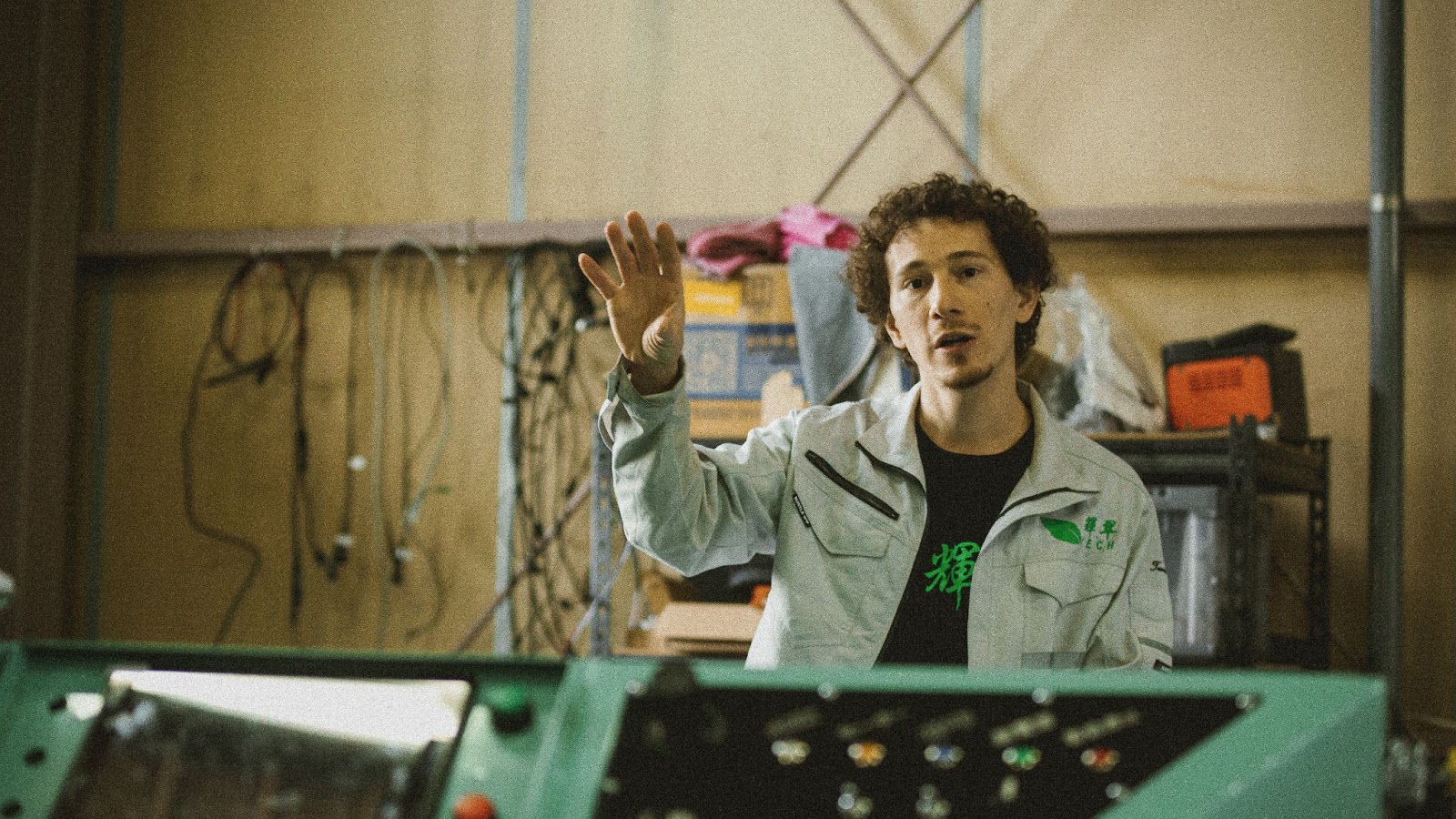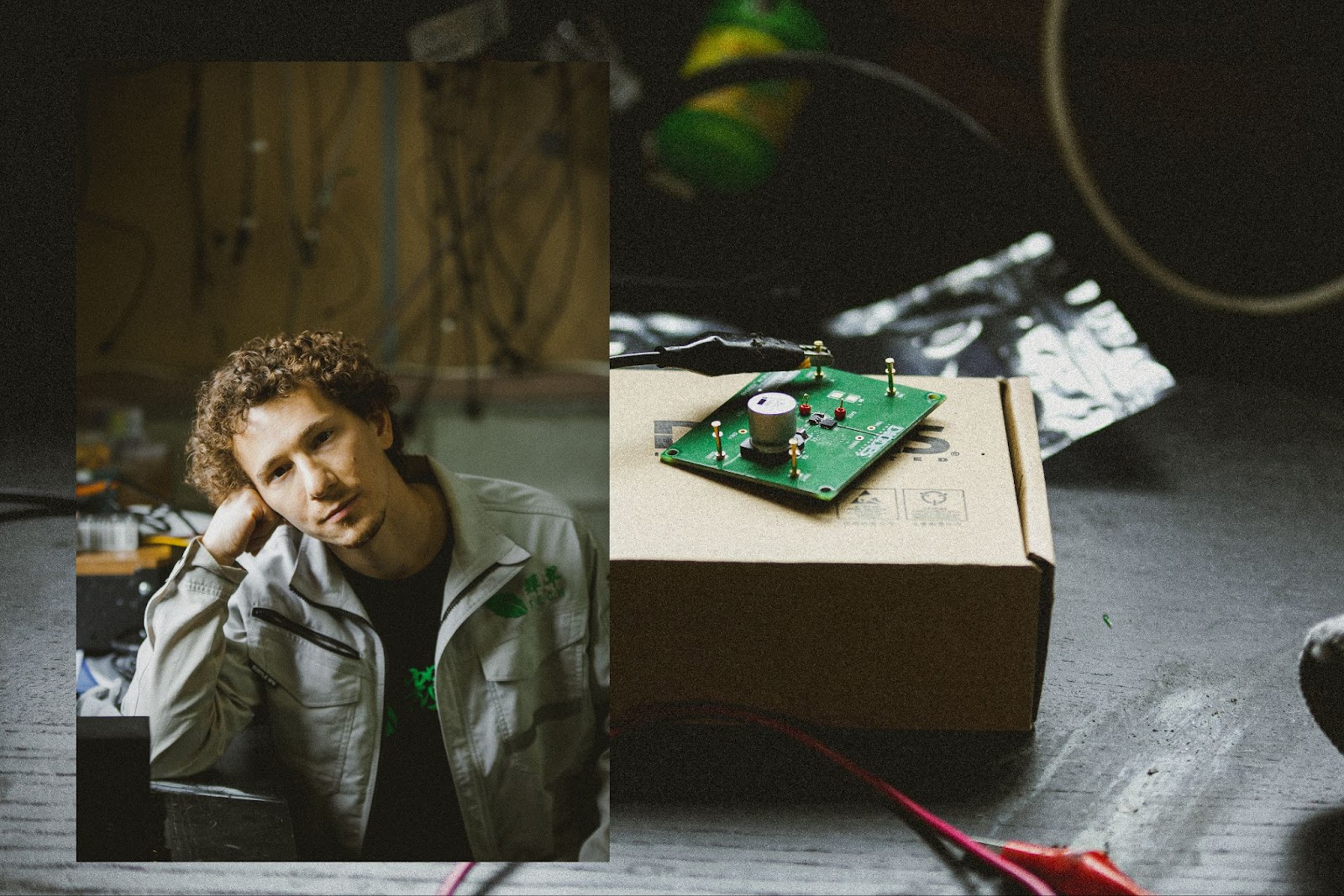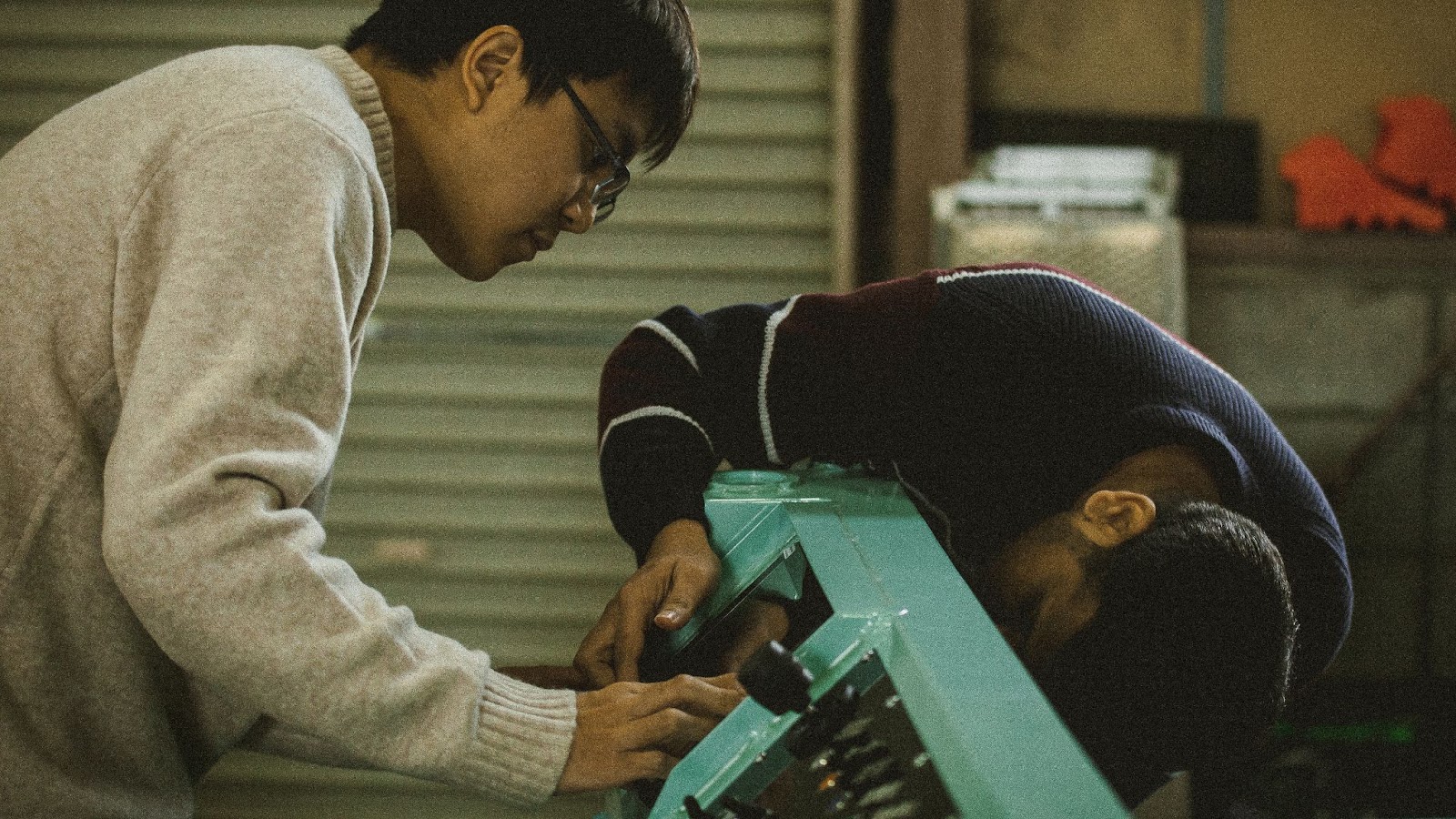Stay updated with the latest news, exclusive insights, and more.

From space robotics to agricultural automation, Tamir Blum founded Kisui TECH to revolutionize farming with AI-powered robots. We spoke with him about his journey from lunar rovers to orchard automation, the challenges of developing autonomous agricultural robots, and his vision for empowering farmers worldwide through technological innovation.

My name is Tamir, and I am the founder of Kisui TECH, a company I established in 2021. When I entered university, I found a student organization where seniors worked on their capstone project, building a lunar rover - a small lunar robot to mine lunar soil. I fell in love with space robotics and space exploration.
I focused on it throughout my undergrad. In my third year, 2015, I found an online article about the Google Lunar X Prize, a competition with money awarded by Google to a private company to send a small lunar robot to the moon. I learned about Tohoku University's team, Hakuto, led by Professor Yoshida at the space robotics lab, one of Japan's leading companies globally.
I found a research article about Professor Yoshida's space robotics lab and decided to go there for a summer internship. That was my first visit to Japan in 2015. At that time, I knew very little about Japan as a country and Its culture. When I came to Japan, I fell in love with the research itself - the space robotics and lunar rover research. I also got along very well with the professor and fell in love with Japan as a country while in Sendai. From there, I decided I wanted to return to Japan, but first, I went back to complete my master's at UCLA.
While at UCLA, I took some breaks to work as an associate engineer at SpaceX on their Crew Dragon capsule. I also interned at AeroVironment, which builds space robotics, military drones, and AgTech. I specifically worked on control systems for military drones. After these experiences, I graduated from UCLA and pursued a PhD in AI application to lunar robot systems.
I got back in contact with Professor Yoshida. I returned to Japan in 2018 for a PhD at Tokyo University, focusing specifically on applying AI to lunar robots for navigating bumpy terrain and obstacles - teaching the robot to learn by itself how to avoid obstacles and drive safely.

During my PhD research from 2018 to 2021, I focused on space robotic systems, specifically rovers and integrating AI technology. During these three years, I traveled around Japan, especially the countryside, and fell in love with the Japanese countryside and its architecture. While driving through rural areas, I noticed all the farms everywhere.
I observed that the local communities were really struggling. After talking to farmers, I learned their work is challenging and time-consuming, especially for vegetable and orchard farmers. Much of it is done by hand, and they have to work in all weather conditions—rain, heat, and cold—throughout all four seasons.
It would be a great practical application for space robotic technology in agriculture. I focused mainly on orchard farmers because, in terms of farming automation, it's one of the most challenging fields. You're dealing with outdoor areas and complicated terrain. GPS signals are usually unreliable due to the presence of trees and infrastructure. You must deal with strong sunlight, varying terrain, and all weather conditions, including snow. Building automation for these conditions is challenging, but I saw an edge in applying robotics and automation technology to this field.

Many challenges can be divided into different categories. As a D-tech company working on automation in off-road, unstructured environments, we deal with challenging, unsolved problems. We have to develop a lot, do research, and verify everything.
Farmers demand high reliability in hardware and software and good after-sales service from a business perspective. We need to provide the entire solution in an affordable package to make it accessible to farmers. There are challenges from both technical and business perspectives, including communication with farmers as a foreigner.
Beyond technical aspects, financial considerations are crucial for a startup. We need to raise money for deep tech and hard tech development, which requires more funding and people than typical software solutions. We must develop hardware, integrate it, get farmer feedback, and iterate until we can scale to production.
Additionally, Japan has many administrative and paperwork requirements. Some are very important, while others consume time. Even simple things like opening a bank account were complicated.

There are many positive aspects, some interlinked with the negative ones. For example, the cost of living in Japan is much cheaper than abroad, especially compared to places like Los Angeles. This helps both on a personal and a company level.
Being a foreigner in Japan gives me a unique perspective that others might not have, which brings uniqueness to the company. There aren't many foreign boundaries in Japan.
The farmers are very open to talking with startups. They face many difficulties in their daily work and have seen little innovation, so they're appreciative when someone tries to help them. Many people might imagine farmers as shy or resistant to innovation, but the opposite is true —they're excited about new technology.
Japanese farmers try to produce very high-quality products. They have smaller cultivation areas than European or American farmers, but the income per area is higher. While they might not be super rich, they can maintain a decent quality of life compared to farmers abroad. Compared to places like the US, the smaller gap between rich and poor in Japan makes farmers more open to trying new things.

Recently, we've been traveling to foreign countries for collaboration - Southeast Asia to talk with palm oil farmers in Indonesia and Thailand, the US to meet American farmers, and Europe to meet Spanish farmers. One advantage for us as a hardware startup is that Japanese brands, particularly in the automotive industry, have a compelling and positive image globally.
As a company wanting to expand outside Japan, we can tap into that positive branding of Japanese companies. While this isn't explicitly related to being a foreigner in Japan, being a foreigner makes it easier in some ways.
When talking to agricultural people abroad, they often want to explain more to us because they want to show what they do and demonstrate the strengths of their approach. It creates a fresh perspective, and people are more willing to take time to explain how their farming works, even though fundamentals like apple tree development are the same everywhere.


The most important thing, whether you're Japanese or not, is networking - talking to entrepreneurs and non-entrepreneurs. While networking with venture capital investors and companies is good, connecting with other entrepreneurs who can share their experiences is especially important.
When I created my company, I had no idea how to handle the paperwork, but a friend I met who had graduated from Tokyo University helped me. He introduced me to a platform called "Freee"( a leading cloud-based accounting and HR software in Japan, offering automated solutions for small and medium-sized businesses)that guides you through company creation. This saved me from wasting time and money.
It's best to have people in similar situations you can ask for advice. Even though they're busy building their own companies, most entrepreneurs are friendly and willing to help. Getting advice from entrepreneurs and non-entrepreneurs is essential because you'll face many challenges and might need specific expertise. You never know what kind of support you'll need - it might come from an entrepreneur, a VC, or someone with a legal or accounting background.

We're aiming to grow sustainably and start shipping our products. We've built a robot called Adam that supports farmers. It's an Agri machine with AI-powered automation and is fully electric. It can follow farmers to work together, using cameras for recognition, and has an autonomous mode to drive itself around the farm. It can handle various attachments, cut grass, apply pesticides, and collect data.
We want to start selling the first units before mid-next year, building our network and scaling in Japan while shipping to Europe for initial testing with global farmers. We're still at an early stage, but our goal is to build the company step by step until we're ready for mass production. We want to implement autonomy in different areas across different countries and explore non-agricultural applications as an off-road vehicle.
We want to empower farmers for a brighter, greener future. This comes from our vision and mission to support farmers in the countryside. The best way to do this is by empowering farmers economically through robots that help them build bigger farms and generate more revenue. By supporting farmers, we can create more good jobs in local areas and bring more young people to the countryside, creating a positive ripple effect.

Throughout our conversation with Tamir, what stood out was his remarkable ability to bridge seemingly distant worlds - space technology and agriculture. His eyes lit up, particularly when discussing how his experience with lunar rovers could help solve Japanese farmers' daily challenges.
Many might find the transition from space robotics to agricultural technology unexpected. However, as Tamir explained his journey, it became clear how his unique perspective as both an outsider to Japan and to agriculture has enabled him to see opportunities where others might not. His deep appreciation for Japanese rural communities and sincere desire to support farmers through technology were evident in every answer he gave.
What makes Tamir's approach distinctive is his focus on practical implementation. While the technology behind ADAM, their AI-powered agricultural robot, is highly sophisticated, his primary concern remains making it accessible and truly useful for farmers. Through countless conversations with farmers and firsthand observations of their daily work, he has developed innovations that address fundamental challenges in Japanese agriculture. His vision of empowering farmers for a brighter, greener future emerges naturally from these ground-level interactions, reflecting a deep understanding of the challenges farmers face and the potential for robots like ADAM to impact their lives positively.